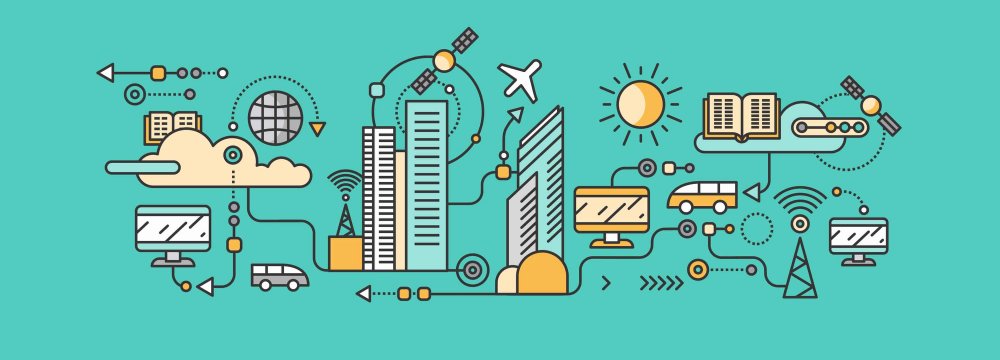
A Yearly Review of Science and Tech 2018


While a tightly linked technology system benefited the United States and China over the last two decades, there is now widespread concern on both sides of the Pacific that the economic and security risks outweigh the gains.
Chinese President Xi Jinping has embraced and accelerated policies designed to increase the innovativeness of the Chinese economy and reduce dependence on foreign suppliers.
President Donald Trump of the US has put Chinese technology policies front and center as a danger to American economic and national security. The eventual outcome of this contest may be two distinct technology systems, with other countries forced to choose if they are going to plug into American or Chinese technology platforms and standards, Adam Segal writes for the Council on Foreign Relations.
Over the last year, the Trump administration has pressured Beijing to roll back ‘Made in China 2025’ and worked to prevent the flow of American technology to China.
Congress passed the Foreign Investment Risk Review Modernization Act, which expands the Committee on Foreign Investment in the United States’ ability to investigate foreign investment in “critical technologies”, and the US Department of Commerce is expected to introduce new export controls on “emerging and foundational technologies.”
Huawei and Cybersecurity
Huawei, the Chinese telecom manufacturer, sits at the center of this new cold war. 5G, the next generation of mobile communication technology, promises greater speed and capacity, and will enable the Internet of Things, automated vehicles, and other innovations. It will also introduce new cybersecurity vulnerabilities.
While US officials have never publicly provided evidence that Huawei equipment has backdoors or been tampered with, they warn that allowing the company to be involved in the build-out of 5G networks raises unmanageable security risks, and they have steadily increased pressure on the company at home and abroad.
Washington has pressured its allies not to use Huawei. In August, Australia effectively banned Huawei from supplying equipment to develop the country’s 5G wireless infrastructure. In November, the New Zealand government rejected a local telecom's proposal to use Huawei equipment in its 5G network upgrade.
In December, a major British telecom announced that it would remove Huawei equipment, and UK intelligence officials have flagged security shortfalls in Huawei software. Canada, Czech Republic, Germany, India, and Japan are reportedly considering banning or limiting Huawei.
5G Race
The race for 5G is far from over. US companies hold a strong position in patents and technological development. Chinese telecoms are rapidly developing competing technologies, benefit from government support in roll out and implementation of 5G services, and often offer their products at prices 20-30% cheaper than their competitors.
The challenge for Washington is to create an environment that supports innovation at home and a shared approach to 5G security with its friend and allies. The competition is likely to pick up in 2019, and the end result increasingly looks like separate spheres of technology influence.
BizTech reports the technology will not replace existing wireless networks, but work with them, combining the benefits of 2G, 3G, 4G/LTE, wired technology and Wi-Fi into one platform that provides density, high speeds and reliable connections at low power.
Watershed Moment
The outgoing year represents a watershed moment in the evolution of how people interact with the likes of Facebook, Google, Twitter and other popular Internet technologies.
Over the year, the prevailing euphoria and faith in the ability of mobile devices and social media to enhance people’s lives shattered in a heap of disturbing revelations, as the dark side of the technology and its providers were exposed on a colossal scale, David Lavenda wrote for CMSWire.
The dark side of Facebook revealed itself on several fronts in 2018. The company revealed itself as arrogant and apathetic to the concerns of greater society. in 2018, the company bounced from one PR scandal to another. The first included disturbing facts about Facebook’s role in the 2016 US presidential election.
The second was the revelation of its laissez-faire approach to data privacy exposed in the Cambridge Analytica episode. The latest scandal surrounded Facebook’s commissioning research to target organizations critical of its operations.
GDPR Ushers New Era
In May, the General Data Protection Regulation (GDPR) became law in the European Union. GDPR introduced data privacy protection for European citizens, including the right to obtain personal data held by organizations.
It also introduced the right of a citizen to request that decisions based on automated processing of personal data should be made by people, and not by computers.
GDPR is the broadest attempt to date to take back some control from the Internet giants who mine our personal data and use it (often surreptitiously) to our detriment. We can look forward to more of this legislation in the future.
Meltdown, Spectre Exploits
In January, security researchers made it known that there were two major vulnerabilities lurking in microprocessors installed on nearly all modern computer devices. The vulnerabilities, which came to be known as Meltdown and Spectre, could effectively be exploited by hackers to steal data processed on the compromised machine.
Companies scrambled to release patches for the exploits, some of which had significant impacts on performance, and continued to release patches to ensure security without the performance hit.
Perhaps more significant, however, is that the discovery of the exploits will have a long-lasting impact on how users view cybersecurity, drawing more attention to hardware security.
Battery technology has not advanced much in decades, but tech firms are on the verge of a power revolution
Power Struggle
While smartphones, smarthomes and even smart wearables are growing ever more advanced, they are still limited by power. The battery technology has not advanced much in decades. But tech firms are on the verge of a power revolution.
Technology firms are all too aware of the limitations of lithium-ion batteries. While chips and operating systems are becoming more efficient to save power, people are still only looking at a day or two of use on a smartphone before having to recharge. Thankfully, universities are getting involved.
While it may be some time before users get their hands on batteries, which can be charged wireless in seconds, and last months, development is progressing well.


Hindustan Zinc to invest $438 million to build reprocessing plant

Gold price edges up as market awaits Fed minutes, Powell speech

Gold Fields nears $2.4B Gold Road takeover ahead of vote

Glencore trader who led ill-fated battery recycling push to exit

UBS lifts 2026 gold forecasts on US macro risks

Roshel, Swebor partner to produce ballistic-grade steel in Canada

EverMetal launches US-based critical metals recycling platform

Iron ore price dips on China blast furnace cuts, US trade restrictions

Cleveland-Cliffs inks multiyear steel pacts with US automakers in tariff aftershock

Trump raises stakes over Resolution Copper project with BHP, Rio Tinto CEOs at White House

US seeks to stockpile cobalt for first time in decades

Trump weighs using $2 billion in CHIPS Act funding for critical minerals

Nevada army depot to serve as base for first US strategic minerals stockpile

Emirates Global Aluminium unit to exit Guinea after mine seized

Tailings could meet much of US critical mineral demand – study

Codelco cuts 2025 copper forecast after El Teniente mine collapse

Glencore targets 1Mt of copper in Argentina over coming decade

Viridis unveils 200Mt initial reserve for Brazil rare earth project

SQM boosts lithium supply plans as prices flick higher

US seeks to stockpile cobalt for first time in decades

Trump weighs using $2 billion in CHIPS Act funding for critical minerals

Nevada army depot to serve as base for first US strategic minerals stockpile

Tailings could meet much of US critical mineral demand – study

Codelco cuts 2025 copper forecast after El Teniente mine collapse

Glencore targets 1Mt of copper in Argentina over coming decade

Viridis unveils 200Mt initial reserve for Brazil rare earth project

SQM boosts lithium supply plans as prices flick higher

Abcourt readies Sleeping Giant mill to pour first gold since 2014















